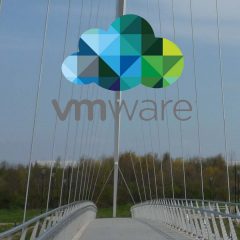ESX 4 to ESX 5 Upgrade Warning ‘Custom VIB Warning’
KB ID 0000500 Problem Seen when upgrading ESXi 4.1 U1 to ESX 5. Error: <3RD_PARTY_SOFTWARE_WARNING: Host contains third-party VIB(s) that have no substitute on the ISO. [‘oem-vmware-esx-drivers-net-vxge’, ‘oem-vmware-esx-drivers-scsi-3w-9xxx’]> If attempting to upgrade with VMware update manager you will see the following; Solution Luckily this was on a test box so I was somewhat more cavalier in my...
vSphere – The ‘VMware VirtualCenter Service’ will not start
KB ID 0000526 Problem I tried to logon to my vCenter this afternoon (Server 2008 R2) and could not get on, I connected to the server to find it was up but the “VMware VirtualCenter Server” service was not running. So I tried to start it and got the following error, Error: Windows could not start the VMware VirtualCenter Server on Local Computer. For more information, review the System Event Log. If this is a non-Microsoft...
Upgrade vSphere 4 Environment to vSphere 5
KB ID 0000543 Problem I will probably have a ton of these to do next year! The following process runs right through the entire migration process of vCenter, the ESX/ESXi hosts, The Datastores, The VM Tools, VMHardware, and finally re licencing everything with your new vSphere 5 keys. Solution Step 1 Verify your Software and Hardware Requirements 1. vCenter 5 Hardware Requirements: CPU: Requires Dual CPU (At least 2GHz – IA64...
vSphere 5 – Install and Configure the Web Client
KB ID 0000551 Problem The ability to administer vCenter via a web browser is nothing new, vCenter has had a web console in previous versions. vCenter vSphere 4 Web Client (Web Access) The version with vSphere 5 is much more feature rich. Like the VMware vSphere client it talks directly to the vCenter vSphere API, but unlike previous web access, the component needs to be installed and configured before you can use it. What the Web...
VMware ESXi – Converting ‘Thick’ Provisioned Drives to ‘Thin’, and ‘Thin’ to ‘Thick’
KB ID 0000579 Problem Thin provisioning of hard drives is pretty cool stuff, full support for thin provisioning was brought in with vSphere version 4. Put simply a thin proviosioned drive is as big as it needs to be, and a thick provisioned drive is set to its maximum size when it’s created. The virtual machines that use these hard drives don’t know, and assume that their hard drive is a set size (even if it is thin...

